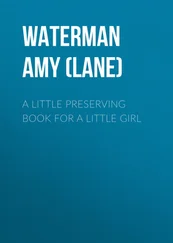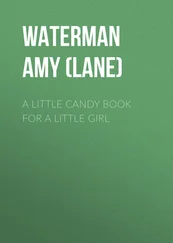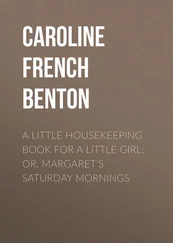Amanda Douglas - A Little Girl in Old Philadelphia
Здесь есть возможность читать онлайн «Amanda Douglas - A Little Girl in Old Philadelphia» — ознакомительный отрывок электронной книги совершенно бесплатно, а после прочтения отрывка купить полную версию. В некоторых случаях можно слушать аудио, скачать через торрент в формате fb2 и присутствует краткое содержание. Жанр: foreign_prose, на английском языке. Описание произведения, (предисловие) а так же отзывы посетителей доступны на портале библиотеки ЛибКат.
- Название:A Little Girl in Old Philadelphia
- Автор:
- Жанр:
- Год:неизвестен
- ISBN:нет данных
- Рейтинг книги:3 / 5. Голосов: 1
-
Избранное:Добавить в избранное
- Отзывы:
-
Ваша оценка:
- 60
- 1
- 2
- 3
- 4
- 5
A Little Girl in Old Philadelphia: краткое содержание, описание и аннотация
Предлагаем к чтению аннотацию, описание, краткое содержание или предисловие (зависит от того, что написал сам автор книги «A Little Girl in Old Philadelphia»). Если вы не нашли необходимую информацию о книге — напишите в комментариях, мы постараемся отыскать её.
A Little Girl in Old Philadelphia — читать онлайн ознакомительный отрывок
Ниже представлен текст книги, разбитый по страницам. Система сохранения места последней прочитанной страницы, позволяет с удобством читать онлайн бесплатно книгу «A Little Girl in Old Philadelphia», без необходимости каждый раз заново искать на чём Вы остановились. Поставьте закладку, и сможете в любой момент перейти на страницу, на которой закончили чтение.
Интервал:
Закладка:
"She must have her free choice of religion. Having tried both," and Bessy gave a dainty smile, "I like my own Church the best. If she should grow up and fall in love with a Friend, she can do as she likes. There are not many as manly and handsome as was Philemon. Indeed I think they make their lives too sad-colored, too full of work. I should go wild if I lost my little one, but Lois Henry goes about as if nothing had happened. I found it a luxury to grieve for Philemon. There is wisdom in thy suggestion."
A lawyer was sent for and the matter laid before him. She could appoint another guardian now that she had money of her own to leave the child, and she could consign it part of the time to that guardian's care.
There was much consultation before the matter was settled. And though, when the time came, she moved some chests of goods out to the farm and made a pretense of settling, she and Madam Wetherill soon after went up to New York and were gone three full months.
James Henry found himself circumvented in a good many ways by woman's wit. There was no dispute between them, and much as he objected to the ways of the world's people, he had no mind to defraud his small niece out of a considerable fortune that might reasonably come to her. Indeed he began to be a little afraid of Bessy Henry's willfulness. And she might marry and leave all of her money to a new set of children.
But fate ordered it otherwise. Bessy went for a visit to Trenton, and though she was rarely separated from her darling, this time she left her behind. She did not return as soon as she expected, on account of a feverish illness which would be over in a few days, her friends insisted, but instead developed into the scourge of smallpox, the treatment of which was not well understood at that time, and though she was healthy ordinarily, the bleeding so reduced her strength that she sank rapidly and in a week had followed her husband.
Madam Wetherill was cut to the very heart by the sad incident, for she loved Bessy as if she had been her own daughter, and she was tenderly attached to baby Primrose, who was too little to realize all she had lost.
When Friend Henry preferred his claim to his brother's child, he was met by some very decided opposition. In the first place the child had been christened in the church, and was, according to her mother's wishes, to be left in Madam Wetherill's charge for six months every year and be instructed in the tenets of her own church, and to remain perfectly free to make her choice when she was eighteen. If her mother's wishes could not be carried out, her fortune was to revert to Madam Wetherill, and she would inherit only what her father bequeathed her.
"I cannot believe my brother was knowing to this nefarious scheme!" cried Friend Henry in a temper. "And I always thought Primrose a most ungodly name. It was his wish she should become a Friend."
"And if your son marries among the world's people and leaves the faith what will you do?" asked Madam Wetherill.
"I should disown him," was the hasty reply.
"Then Bessy had a right to disown her child if she left the faith. See how unreasonable you are, Friend Henry, and how little true love is in your mind. Now if you have any regard for the little child do not let us quite dismember her after the fashion of Solomon's judgment. You may have her next summer, and I in the winter. I warn you, if you do not agree, I shall fight to the end. I have no children of my own to deprive if I go on lawing, and my purse will surely hold out as long as yours."
That was true enough; longer, he knew. So, after a while, he assented ungraciously, and the matter was adjusted.
But it was not a happy omen that the child's name should cause one quarrel and the possession of her another. She herself was bright and joyous, with much of her mother's merry nature and her clear, frank, beguiling blue eyes.
CHAPTER III.
IN A NEW WORLD
A very homesick little girl was Primrose Henry when she went out to her uncle's farm. The nurse went with her, but Lois Henry preferred that she should not stay. The child was old enough to wait upon herself. She had a longing for it to fill the vacant place of her own little girls, but she knew that was carnal and sinful, and strove against it. Since God had deprived her of them it was not right to put aught else in their place. So it was a continual struggle between love and duty, and she was cold to the little stranger.
The name, too, was a stumbling block. They had to accept it, however, and called her Primrose with the soberest accent. Uncle James felt sore about being worsted in his suit, for he had desired supreme control of the child.
She soon found things to love. There was the big house dog Rover. Tiger, the watch dog, was kept chained in the daytime and let loose at night to ward off marauders. But he soon came to know her voice and wagged his tail joyously at her approach. She was quite afraid of the cows, but a pretty-faced one with no horns became a favorite, and she used to carry it tid-bits to eat. The cats, too, would come at her call, though they were not allowed in the house.
And there was Andrew. She was very shy of him at first, but he coaxed her to look at a bird's nest with its small, blue-speckled eggs. And there were the chickens that, as they grew larger, followed her about. Andrew found the first ripe early pear for her, and the delicious, sweet July apple; he took her when he went fishing on the creek, but she always felt sorry for the poor fish so cruelly caught, it seemed to her. He taught her to ride bareback behind him, and some boyish tricks that amused her wonderfully.
Aunt Lois trained her in spelling, in sums in addition, sewing patchwork, and spinning on the small wheel. But there was not enough in the simple living to keep a child busy half the time, and she soon found ways of roaming about, generally guarded by Rover. Aunt Wetherill had said, "In six months you are coming back to us," so at first she was very glad she was not to stay always.
It is the province of happy and wholesome childhood to forget the things that are behind, or even a future in which there is dread. The life of childhood is in the present, and it finds many pleasures. So now Primrose had almost forgotten her joyous and sorrowful past, and really dreaded the next change. She hated to leave Andrew, the dogs and the chickens, the cows that she did not fear quite so much, the great orchard, the long reaches of meadows, and the woods where the birds sang so enchantingly. But Aunt Lois had not grown into her heart, and she stood greatly in awe of Uncle James, who had a way of speaking sharply to her.
But black Cato came with Madam Wetherill in the lumbering chaise, which was a great rarity at that period. Primrose was dressed in a white homespun linen frock. At this early stage of the country's industries they were doing a good deal of weaving at Germantown, though many people had small looms in their houses. Imported goods were high, and now that so much of the land was cleared and houses built, they had time for other things, and were ingenious in discoveries.
Madam Wetherill was very grand in her satin petticoat and brocade gown, that fell away at the sides and made a train at the back. Her imported hat of Leghorn, very costly at that period but lasting half a lifetime, had a big bow of green satin on top, and the high front was filled in with quilled lace and pink bows. From its side depended a long white lace veil with a deep worked border of flowers. Her shoes had glittering buckles, and she wore a great brooch in her stomacher.
Primrose was dreadfully shy, she saw so few strangers. She scarcely raised her eyes to the rustling dame, and her heart beat with unwonted agitation.
Madam Wetherill wanted to laugh at the queer little figure, but she was better bred, and kept a lingering fondness for the child's mother. Besides, she was one of the possible heirs to her fortune, and some of the grandnieces and nephews were not altogether to her fancy. And though she was high-spirited and could both resent and argue fiercely, she had the Wardour suavity, and some early training abroad in the Court.
Читать дальшеИнтервал:
Закладка:
Похожие книги на «A Little Girl in Old Philadelphia»
Представляем Вашему вниманию похожие книги на «A Little Girl in Old Philadelphia» списком для выбора. Мы отобрали схожую по названию и смыслу литературу в надежде предоставить читателям больше вариантов отыскать новые, интересные, ещё непрочитанные произведения.
Обсуждение, отзывы о книге «A Little Girl in Old Philadelphia» и просто собственные мнения читателей. Оставьте ваши комментарии, напишите, что Вы думаете о произведении, его смысле или главных героях. Укажите что конкретно понравилось, а что нет, и почему Вы так считаете.












